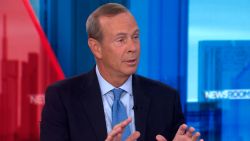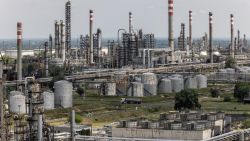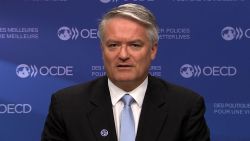Global oil demand is expected to hit its highest-ever level this year on the back of China’s swift reopening of its economy.
Oil demand could surge by 1.9 million barrels per day to reach a record 101.7 million barrels per day, the International Energy Agency said in its latest monthly report, released Wednesday.
“China will drive nearly half this global demand growth even as the shape and speed of its reopening remains uncertain,” the IEA said.
Beijing began to dismantle its strict zero-Covid policy in December, paving the way for a rebound in travel, trade and business activity across the world’s second-biggest economy. Most economists expect growth to remain sluggish in the first quarter of 2023 before picking up over the rest of the year.
The rebound in Chinese demand could lead to a tighter global oil market as the “full impact” of Western sanctions on Russian oil starts to bite, the IEA said in the report.
The Paris-based agency said that oil exports from Russia dropped by 200,000 barrels per day on average in December from the previous month after the European Union imposed a ban on imports of Moscow’s crude and G7 nations imposed a cap on the price at which the fuel could be traded.
Prices for Brent crude, the global benchmark, tumbled last year after hitting a 14-year high of $139 a barrel in early March after Russia invaded Ukraine. Prices started to recover in early December, and ticked up 1.7% on Wednesday to hit $87 a barrel.
Where prices could go next is unclear. The IEA said there was a “high degree of uncertainty” over its outlook. Despite an expected drop in supply from Russia, global oil inventories are at their highest levels since October 2021.
A boom in demand for electric vehicles and countries’ efforts to become more energy efficient could also help temper demand, the agency said.
“Measures like these are especially vital in a supply-constrained oil market,” it added.
Mood shift?
The IEA’s forecasts come as business leaders express cautious optimism that the world can avoid a recession in 2023, after months of gloomy forecasts about the economic outlook.
That’s thanks in large part to China, whose reopening is expected to unleash a wave of spending that may offset economic weakness in the United States and Europe.
Earlier this month, the International Monetary Fund said that about one third of the world economy would this year likely fall into recession — typically defined as two or more consecutive quarters of declining growth.
In November, the Organization of Petroleum Exporting Countries and its allies started slashing their oil output by 2 million barrels per day, a policy set to continue through 2023, as it forecast a drop in demand.
— Julia Horowitz contributed reporting.

























